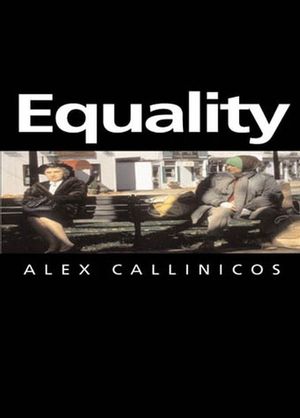EqualityISBN: 978-0-7456-2324-5
Hardcover
176 pages
October 2000, Polity
 Other Available Formats: Paperback
|
||||||
In this important new book, Alex Callinicos explores the meaning
of equality in the contemporary world. He traces its origins as a
political ideal in the great democratic revolutions of the 17th and
the 18th century, and in the efforts of the socialist movement to
force capitalism to live up to its promise of liberty, equality and
fraternity. Callinicos also shows how the theories of egalitarian
justice developed over the past generation by philosophers such as
John Rawls, Ronald Dworkin, Amartya Sen and G. A. Cohen have given
a much more precise meaning to the ideal of equality. Individuals
are entitled to be protected from the consequences of circumstances
beyond their control - for example, the socio-economic position and
the natural talents they inherit - in order to have equal freedom
to pursue their own well-being.
The implications of egalitarian justice are radical. Callinicos
critically reviews the versions of this ideal - equality of
opportunity and social inclusion - by supporters of the Third Way
such as Gordon Brown and Anthony Giddens. He argues that the
strategy pursued by New Labour to increase equality is riddled with
contradictions and contains an underlying authoritarian dimension.
Fundamentally, equality and the market are irreconcilable. Any
attempt seriously to increase social equality will come into
conflict with the logic of the capitalist economic system. Only a
socialist society, organized along democratic and decentralized
lines, can realize the ideal of equality.
This book will be of great interest to students of politics, philosophy and sociology, and all those interested in this key and controversial topic.



